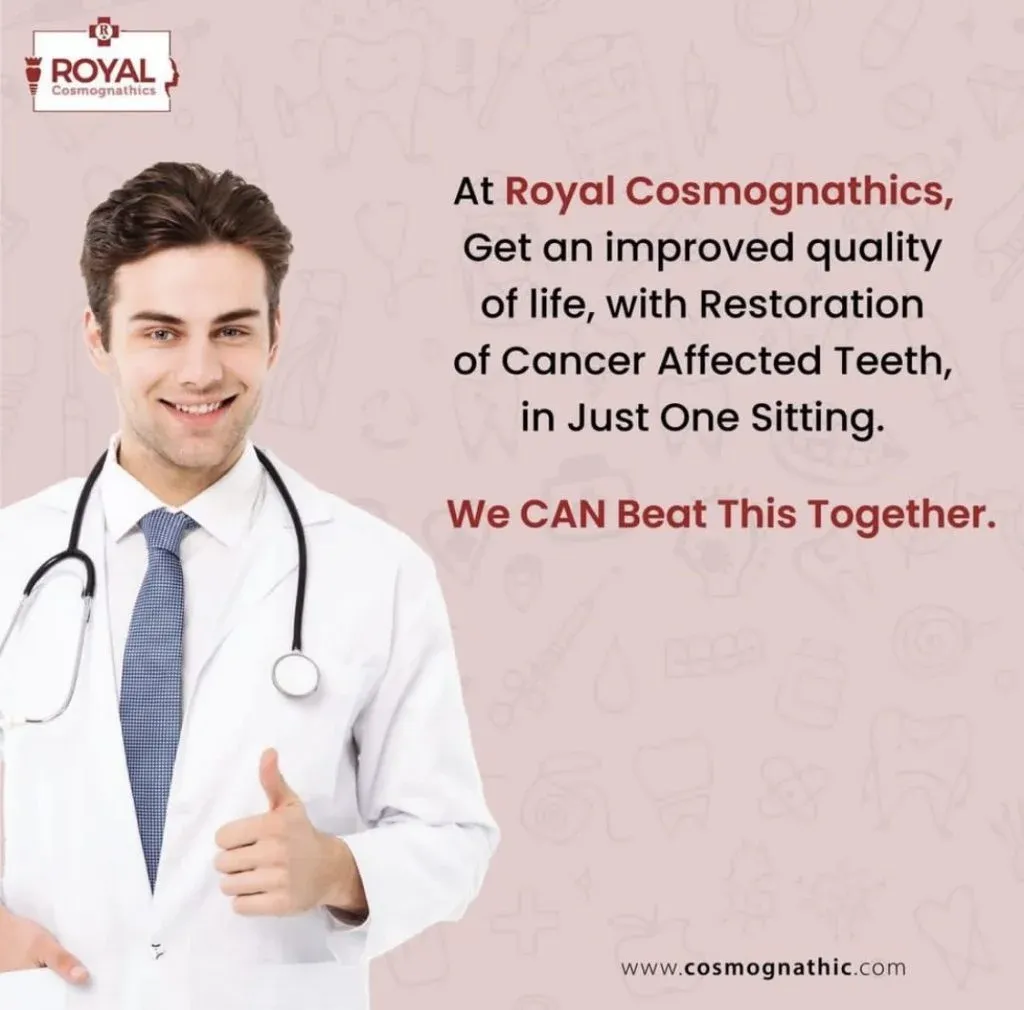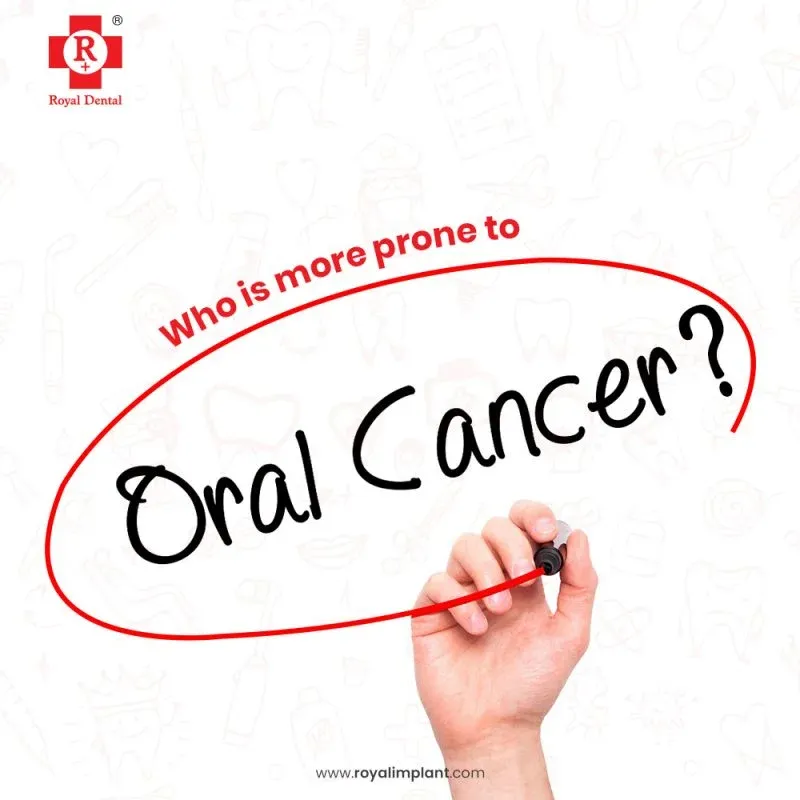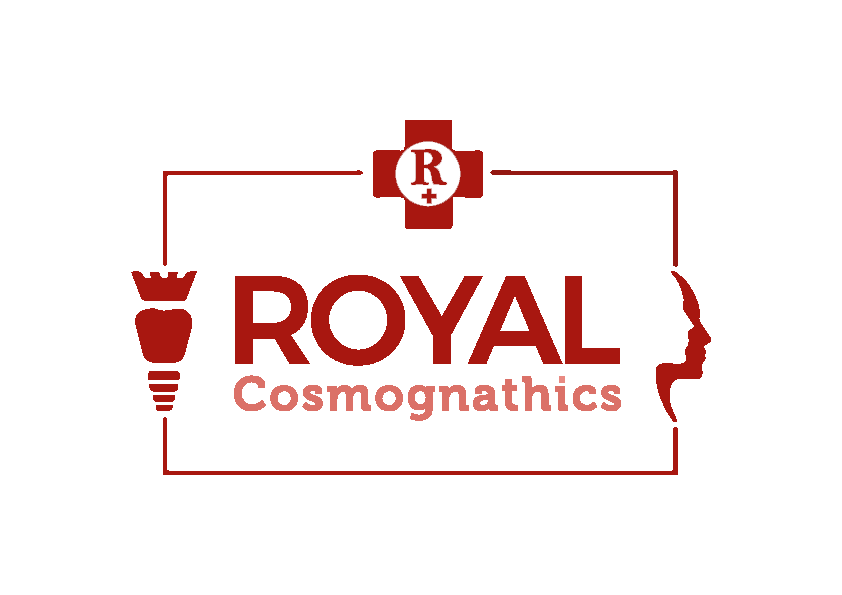Oral cancer typically initiates as a small ulcer or lump on the tongue, cheek, or gums. Remarkably, around 75% of individuals diagnosed with Oral Cancer in Mumbai are tobacco users. Those who both smoke and consume alcohol face a staggering 15 times higher risk of developing oral cancer than their counterparts. Additionally, chronic irritation from a sharp tooth can trigger these changes. In India, a significant 30% of total cancers are attributed to the Head and Neck region, in stark contrast to the Western world’s 5%. The prevalence of oral cancers in the Indian subcontinent is largely attributed to the use of tobacco, betel nut, ‘paan’ chewing, as well as smoking and alcohol abuse.

Interestingly, even in the present day, many oncologists in Mumbai treat cancers affecting the jaw without a dental background. It is noteworthy that while oral cancer can be successfully treated, the quality of life may be impacted due to various factors. One such factor could be the challenge of chewing food following jaw removal. In the context of Oral Cancer Treatment in Mumbai, it is crucial to address the high prevalence linked to tobacco use and other habits. Oncologists in the region, despite lacking a dental background, play a vital role in successfully treating oral cancers. It is imperative to explore treatment options that not only combat cancer effectively but also consider the potential impact on the patient’s quality of life, particularly in tmj.
Early Signs And Symptoms of Oral Cancer.
- Early detection of oral cancer through the Dental Cancer Symptoms
- Feelings of soreness, pain and changes to one’s teeth
- Loss of smell or taste
- Blurry vision
- Difficulty chewing or dry mouth
- Some mouth movements are less smooth, more distorted or asymmetrical
- Excessive thirst or frequent urination
- Digestive problems such as bloating or stomach pain
Cancer Affected Jaw Technology
With advent of Cone Beam Computerised Technology (CBCT) a 3D scan of your cancer affected jaw with surrounding structures can now be printed on a 3D printer and accurate mouth cancer surgery along with replacement of teeth in the new jaw is now possible within few hours at Royal Dental Clinics. Here’s one more educating and informative video by Dr. Chirag Chamria, Oral & Maxillofacial Surgeon at Royal Dental Clinics about Cancer Affected Jaw Teeth.
Oral Cancer Treatment in Mumbai | Dr.Chirag Chamria
Dr. Chirag Chamria emphasises the high curability of Oral Cancers, particularly in the initial stages. At Royal Cosmognathic, the surgical approach employs cutting-edge treatment planning, ensuring accuracy and precision. This meticulous planning is instrumental in restoring the form and function lost during cancer removal. In light of these precise findings, they craft surgical guides and stents, enhancing the surgical process.
The experienced surgeons at Royal Cosmognathic execute these procedures with a combination of detailed planning, accurate models, and the use of advanced polymers. Dr. Chirag Chamria sheds light on a case involving recurrent Oral Cancer, discussing effective workarounds tailored for such scenarios. The utilisation of advanced and precise technology not only proves advantageous for dental implants but also plays a pivotal role in the complete restoration of the mouth. This is made possible through the application of the PEEK Framework, which acts as an excellent shock absorber.
When it comes to diagnosis and planning of Mouth Cancer Treatment in Mumbai, Royal Cosmognathic stands out due to their expertise with dental technology and advanced dentistry. Their commitment to precision and innovation ensures optimal outcomes for patients seeking effective solutions for oral cancer.
Causes for Oral Cancer in Jaw | Dr Chirag Chamria
Tobacco is one of the most common cause of mouth cancer. This includes chewing or smoking anything that contains tobacco. Smoking causes the deadliest type of oral cancer known as squamous cell carcinoma. The lining of mouth is rich with bacteria which produce nicotine. Nicotine irritates the mouth and leads to formation of small cancer cells. However, Cigarette smoking contains harmful chemicals like arsenic, which are carcinogenic and can destroy good cells in the mouth.
“Our aim at Royal Cosmognathic is to not to Fight Cancer. Aim is to Reconstruct what lost.“
Dr. Chirag Chamria
✦ Early detection of oral cancer
✱ Feelings of soreness, pain and changes to one’s teeth
✦ Loss of smell or taste
✱ Some mouth movements are less smooth, more distorted or asymmetrical
✦ Difficulty chewing or dry mouth
✱ Digestive problems such as bloating or stomach pain
✦ Excessive thirst or frequent urination
Full Mouth Rehabilitation after Oral Cancer Treatment
Facial defect rehabilitation becomes imperative for patients who have undergone tumour ablative surgery for head and neck cancers or experienced trauma. A comprehensive, multidisciplinary approach is essential in caring for these individuals. In many head and neck surgery cases, rehabilitation preparations are undertaken prior to the surgical procedure. Severe facial defects may arise due to trauma, cancer surgery, or congenital disorders.
Over the years, craniofacial prostheses have evolved to address tissue loss in areas such as the eye, ear, nose, and multiple sites, significantly enhancing individuals’ quality of life and mitigating aesthetic concerns post-surgery. These prostheses can be secured using skin adhesives or mechanically through extraoral implants.
The rehabilitation process following oral cancer, often involving jaw surgery, encompasses several key aspects:
- Restoration of Dental and Facial Aesthetics: Aiming to enhance the patient’s appearance and overall facial harmony post-surgery.
- Retaining or Restoring Lip Function and Clarity of Speech: Focusing on maintaining or reinstating crucial aspects of oral communication and facial expression.
- Restoring Stable Dentition and Ability to Swallow: Prioritising the reconstruction of a stable dental structure and ensuring the patient’s ability to swallow effectively.

The integration of Jaw Surgery within the broader context of facial defect rehabilitation underscores the importance of a tailored and thorough approach to address the unique challenges faced by individuals undergoing such procedures. This comprehensive care seeks to not only restore physical functions but also improve the overall well-being and confidence of the patient.
Advanced Oral Cancer Treatment in Mumbai
Oral Cancer Treatment in Mumbai depends mainly on general health, where in the mouth the cancer began, the size of the tumour, and whether the cancer has spread. Treatment of mouth cancers is ideally a multidisciplinary approach. The treatment modalities are surgery and radiation, with chemotherapy added to decrease the possibility of metastasis Some patients have a combination of treatments. Oral Surgery is the main form of treatment for oral cancers. Numerous surgical approaches have been developed that permit preservation of organ function and facial appearance to a far greater degree than was possible in the past. Patients are usually worried about changes in the facial appearance following cancer surgery.
Quality of Life after Oral Cancer
The taste and feel of food after oral cancer surgery is unique. Understanding what to expect, learning about the different types of surgery and knowing what you are likely to experience. As a result, can help ensure you’re prepared for that first bite. You may be able to eat some foods from day one. However, if your surgery involves removing a large portion of the inside of your mouth or tongue, eating may be difficult for some time. If you’ve had radiation treatment, it can take even longer for your sense of taste to return. Understanding what to expect will help make those first few days post-surgery much more manageable.

How long are the after effects of surgery?
Different people experience different levels of difficulties after surgery. In some cases, your mouth may be numbed or you may not be able to taste food. Other times, you may experience difficulty swallowing. It can take anywhere from a few weeks to a few months for the taste and feel of food to return completely to normal. The most important thing is to start slowly and not expect too much too soon. It’s also important that you continue making healthy food choices during this time period. Make sure that you are getting enough protein and other nutritional foods in order to maintain your weight and health while recovering.
You may not realize, but there is a chance that you could be ignoring the warning signs of oral cancer. The mouth has one of the highest rates of cancer among all cancers. Here are some ways that you can protect yourself from oral cancer by practicing good mouth hygiene and getting regular check-ups.
Signs and Symptoms of Mouth cancer
- Pain or difficulty swallowing
- Difficulty opening the mouth
- Painful mouth sores or ulcers that don’t heal
- Red or white patches in the mouth that persist for weeks
- Halitosis, or bad breath
- Bleeding from the mouth that is recurrent
- Swelling that causes difficulty swallowing
- Numbness in the mouth or tongue
- Jaw or ear pain or speaking difficulty
- Dentures that don’t fit any longer
How can Dentist detect Cancer?
Oral cancers are linked to an increased risk of other types of head and neck cancers, so the doctor may also examine the larynx, behind your nose and the lymph nodes on the back of your neck. If cancer is suspected, your dentist will likely refer you to an expert such as an ENT (ear, nose and throat doctor) or an otolaryngologist (head and neck surgeon) who will perform a complete head and neck exam in addition to one or more of the following tests.
Biopsy: A small piece of tissue from an area of suspicion in the mouth or neck may be removed with an incisional or punch biopsy. If warranted, a fine needle aspiration (FNA) biopsy of nearby lymph nodes may be performed. These samples will be examined under a microscope in order to detect cancer.
Pan-endoscopy: Endoscopes are used to ensure there are no other related cancers. Imaging tests may also be performed in order to diagnose and stage the cancer. These may include:
- X-rays, to provide images of the neck, mouth and jaw
- Computed tomography (CT) scan, for cross-sectional images to help determine the size and location of a tumour and whether it has spread
- Magnetic resonance imaging (MRI), for detailed images of the body’s soft tissues to help determine whether cancer has spread to other tissues or reached the bone marrow.
CAJTeeth™ Technology
CAJTeeth™ is a one-of-a-kind technology used at Royal Cosmognathic that allows for the restoration of teeth and tissue which is due to oral cancer. The rehabilitation of teeth allows for a more normal eating, jaw and oral function. Traditionally, any dental rehabilitation after cancer treatment, would be deferred by at least 2 years. But now with the advancement in 3D technology, the teeth are restored at the same time as that of cancer surgery.
The CAJTeeth™ process begins with confirmation of the suspicion during a biopsy or surgical intervention. This treatment protocol at Royal Cosmognathic was established based on medical findings and patient needs. Post treatment rehabilitation includes recommendations such as orthodontics, dietetics and speech therapy. As needed, as well as retention guidelines to ensure stability and longevity of restored teeth.
Options for Oral Cancer Rehabilitation?
Removable Dentures
In cases where the upper jaw resection done maxillofacial prosthesis like obturator constructed. This done separate oral cavity from nasal cavity. It helps the patient in speech and eating. Cancers affected jaw rehabilitation includes reconstruction of dental and maxillofacial defects to restore mastication and aesthetics to improve quality of life, to boost the moral for cancer patients.
Dental Implants with fixed teeth
After restoring the jawbone through bone augmentation, dental implants placed restore the physical appearance and function of the mouth. In dental implants, implant fixtures take the place of the root of a tooth. Instead of resting on the gum line like dentures, the implants placed into the jawbone to mimic the root of a tooth. During osseointegration, the biocompatible implants fuse with the surrounding jawbone. Once the metal root is in place, the dentist or surgeon attaches a new life-like tooth to complete the restoration process.
Dental implant treatment requires extensive planning and preparation to be successful. This includes correctly managing the soft tissue contours which is critical for aesthetics and hygiene, and for the health of these tissues. Some dentists will spend significant time shaping impermanent implants or placing customized healing abutments to help contour the soft tissues.
CAJTeeth Cancer Treatment
CAJTeeth™ allows for the restoration of teeth which lost due to oral cancer. The rehabilitation of teeth allows for a more normal eating, jaw and oral function. Traditionally, any dental rehabilitation deferred by at least 2 years. But now with the advancement in 3D technology, the teeth can have restored at the same time as that of the cancer surgery. Oral cancer is a life-threatening disease that affects the oropharyngeal region of the head and neck. This type of cancer is different from other cancers in that it is the only one that can have prevented through early detection. Oral cancer can also affect teeth and this can be managed with CAJTeeth™ technology.
Frequently Asked Questions
After Oral Cancer Surgery: Impact on Taste?
Oral cancer surgery can alter the taste and texture of food. This may result in a metallic or blood-like taste, or even a loss of taste sensation, especially if the tongue is entirely removed, leading to a temporary lack of sensation for over two months. Contrary to the belief that taste sensations are solely on the tongue, research indicates that about 10 percent of taste buds are distributed along the mouth. When the tongue is compromised, these alternative taste buds may become active, offering a more realistic taste experience.
Recovery Period and Returning to Normal?
Recovery experiences vary among individuals post-surgery. Some may encounter numbness or difficulty swallowing, impacting their ability to taste. The process of regaining normal taste and texture sensations typically spans a few weeks to a few months.
It’s crucial to approach recovery gradually, managing expectations and maintaining a nutritious diet. Despite taste alterations, prioritise healthy food choices, ensuring an adequate intake of protein and other essential nutrients to support overall well-being during the recovery phase.
A common concern among patients is, “Can I restore my teeth?”
The oral specialist will create an impression for a full or partial denture, providing a temporary dental bridge until your new teeth are ready. For those who’ve lost teeth due to oral cancer, prosthetic teeth or implants may be recommended. Implants offer a permanent solution, ensuring a natural-looking smile without concerns of instability during treatment.
How do I find reliable oral cancer treatment in Mumbai?
Begin by researching reputable healthcare facilities, consulting with oncologists specializing in oral cancer, and seeking recommendations from trusted sources to find reliable oral cancer treatment in Mumbai.
Can oral cancer treatment be combined with alternative or complementary therapies in Mumbai?
Some patients explore complementary therapies, and in certain cases, they may be integrated into the overall treatment plan. It’s crucial to discuss these options with the oncology team to ensure compatibility with conventional treatments.
What types of conditions can be treated with jaw surgery?
Jaw surgery can address conditions such as overbite, underbite, open bite, facial asymmetry, and
issues related to the temporomandibular joint (TMJ).
Are support services available for patients during oral cancer treatment?
Yes, we provide comprehensive support services, including counselling, nutritional guidance, and support groups. Our goal is to stand by our patients and their families throughout their oral cancer treatment journey.
How is jaw cancer diagnosed?
If you’re experiencing jaw cancer symptoms, your Oral Specialist may complete a full physical examination, including checking for lumps in your neck, mouth and cheeks, and gather your personal and family medical history. Oral cancers are linked to an increased risk of other types of head and neck cancers, so the doctor may also examine the larynx, behind your nose and the lymph nodes on the back of your neck.
What are the options for oral rehabilitation?
Removable Dentures
Dental Implants with Fixed Teeth
Why dental implants after oral cancer ?
Safe and reliable option – Permanent Tooth replacement
Preserves facial structures – Avoiding the need for reconstruction surgery
Ideal for older adults – Restore chewing ability
Benefits of fixed teeth with Dental Implants in oral cancer
Can oral cancer treatment in Mumbai be personalized based on individual health conditions and
preferences?
Yes, oncologists in Mumbai tailor oral cancer treatment plans to individual patients, considering factors like overall health, treatment goals, and patient preferences to create a personalized and effective approach.

